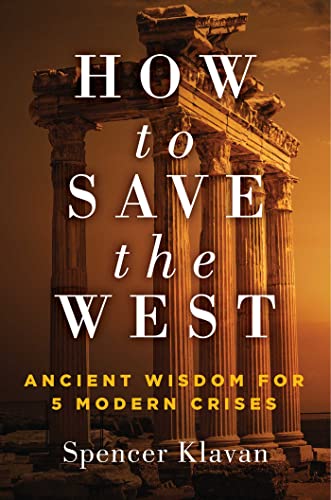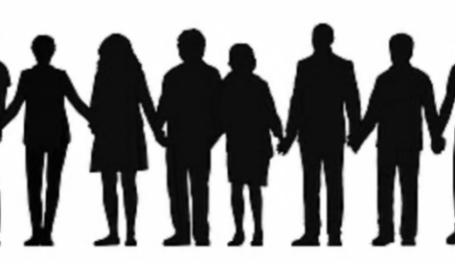Book Profile
The Never-Ending Crises of the West
 Partheon in Athens, Greece. Credit: Rich Lynch. License: Shutterstock.
Partheon in Athens, Greece. Credit: Rich Lynch. License: Shutterstock.

How to Save the West, the debut book from Claremont Institute editor and podcast host Spencer Klavan, sets itself an impossible task with its title—one its author tacitly admits in his conclusion. But the principle of applying ancient wisdom to modern problems offers much to the reader.
Indeed, Klavan’s analysis of the “five crises”—of reality, of the body, of meaning, of religion, and of politics—is strangely refreshing: Civilization has been here before, struggling and contesting with similar notions, for generations. To quote Ecclesiastes, “Is there any thing whereof it may be said, See, this is new? it hath been already of old time, which was before us.”
The Five Crises
Klavan identifies five crises affecting America and, more broadly, Western civilization:
- A crisis of reality, in which technology replaces human interaction either by default or force;
- A crisis of the body, in which the desire to transcend what Shakespeare called “the thousand natural shocks that flesh is heir to” leads to sex reassignment and perhaps uploading one’s consciousness to a computer;
- A crisis of meaning, since the rise of scientific inquiry and especially biological natural selection have displaced beliefs in the purpose of life;
- A crisis of religion, since science has supposedly “disproved” the existence of God; and
- A crisis of politics or the “American regime,” since all nations ultimately fall.
Before debating the wisdom of ancient wisdom, it is worth considering whether these are indeed crises from which the West needs saving. Fear of a permanent, semi-mandatory digital “metaverse” superseding interpersonal interaction, which seemed like a plausible future in the dark days of the extended lockdown, looks put to the sword by events. Millions jammed Buenos Aires to celebrate the World Cup, the Chinese Communist Party eased its “Zero COVID” regime in the face of mass demonstrations, and Meta Platforms has lost almost half its share value since the “metaverse” project was made public. While blue-state America remains deeply in the grip of gender ideology, even deeply secularist European countries like the U.K. and Sweden are hitting the brakes. Whether meaning, religion, and some ideal American government persist are matters of truth or falsity, not “crises” to be solved.
But dismissing the dangers posed by the five crises as either superseded by events or irrelevant would be too glib; they are problems. Defenders of Big Tech have cited the companies’ products roles in helping people live in lockdown as grounds not to regulate them. The federal government and the bureaucracy of international nongovernmental organizations still seek to advance transgender ideology at younger ages, while for-profit concerns continue to seek new ways to overcome human physical limitations. And, as Klavan explains in the book, claims that science has overcome religion are more bad philosophy than good empiricism. While the reader is unlikely to reorient the American political system himself, local involvement can make communities better and rebuild, in a small way, the national brotherhood.
Ancient Wisdom
While a trip through the crises afflicting the United States and other Western countries might sound like a recipe for depression, Klavan (a Ph.D. classicist) leavens the modern problems with ancient sources who show that, while the manifestations may be contemporary, the crises of the West are as old as the West itself.
Is reality just what a man makes of it, or what a demagogue can persuade him to believe, even if he knows it is just digital ones and zeroes? That is not unlike Socrates’s and Plato’s disputations with the sophists—political rhetoricians unmoored from objective reality—of ancient Athens. How should we relate to our bodies? Plato, Descartes, Aristotle, and Thomas Aquinas (plus dozens more for whom a 180-page book does not have space) have all contested this question. The meaning of humanity’s imitations of the world, our arts, and their effects on people? The debate is as old as writing and probably older. Science disproving religion? Far from it; scientists themselves are often left to pin their theories on unobservable phenomena like a “multiverse,” demonstrating the limits of empirical inquiry. And the cycle of regimes—the decay of monarchy to tyranny, aristocracy to oligarchy, and democracy to ochlocracy (mob rule)—is as old as organized human society.
No Final Defeats
That is why one might be refreshed by Klavan’s short survey of ancient wisdom and modern problems. A conservative always fears that everything is only getting worse, the world is going to the dogs, and the kids these days are going to ruin all that once was good. But if the struggles of today have echoes in Ancient Greece, Ancient Rome, and the books of the Bible, then maybe things can improve.
For if they could not, wouldn’t the whole conversation already be over? Wouldn’t some metaverse have already conquered? Technology might make “meta” more available, but taking leave of the senses through drug use, licentiousness, or other altered states of consciousness is ancient. Wouldn’t shuffling off some part of this mortal coil to transcend mere humanity have prevailed? Ignoring the body or demanding it conform to the desires of the mind is ancient, too. Belief the universe is meaningless has contested with belief in meaning since Ancient Greece, as well. And the name of the “cycle of regimes” demonstrates all by itself that the political order is not constant in form, but rather constant in struggle.
So while all this means that “the good times,” whenever they were, are not preserved in amber, neither are the maladies of the present. Klavan’s book is an invitation to dive into the great debates that have emanated from Athens and Jerusalem; readers would be wise to take it.




